
Hazeena Seyad is a passionate home chef whose culinary journey began at the age of 14. Guided initially by her mother-in-law, she grew into a confident and creative cook, unafraid to experiment and explore new flavours. What started as a personal passion soon evolved into a meaningful pursuit of sharing authentic regional recipes with the world.
To document her experiences, she created the Facebook page Sauté, Fry n Bake, where she shared everyday traditional dishes. With consistent effort and 27 years of home-cooking experience, her page grew to over 20,000 followers, earning appreciation from food lovers around the world. Encouraged by her community, she expanded her culinary work through various online platforms.
Hazeena’s cooking lessons—focused on regional cuisines—are extremely popular and give her the opportunity to connect with people who share her love for traditional food. Her website, sautefrynbake.com, is now one of South India’s well-known platforms for simple, authentic, home-style recipes. She is a regular contributor to Tamil magazines such as Pothigai Saaral and Aval Kitchen of the Anandha Vikatan group.
Her first Tamil cookbook, Vadhaka, Varukka, Vegavaika, a concise collection of Ravuthar recipes, was widely appreciated. Building on that success, she continues to share her community’s culinary heritage through her books and digital presence.
Coming from a Muslim upbringing, Hazeena deeply values tradition and family. Despite her busy schedule, her children and husband remain her first priority, and she credits them for supporting her culinary journey and encouraging her to turn her passion into meaningful work.
About the Author
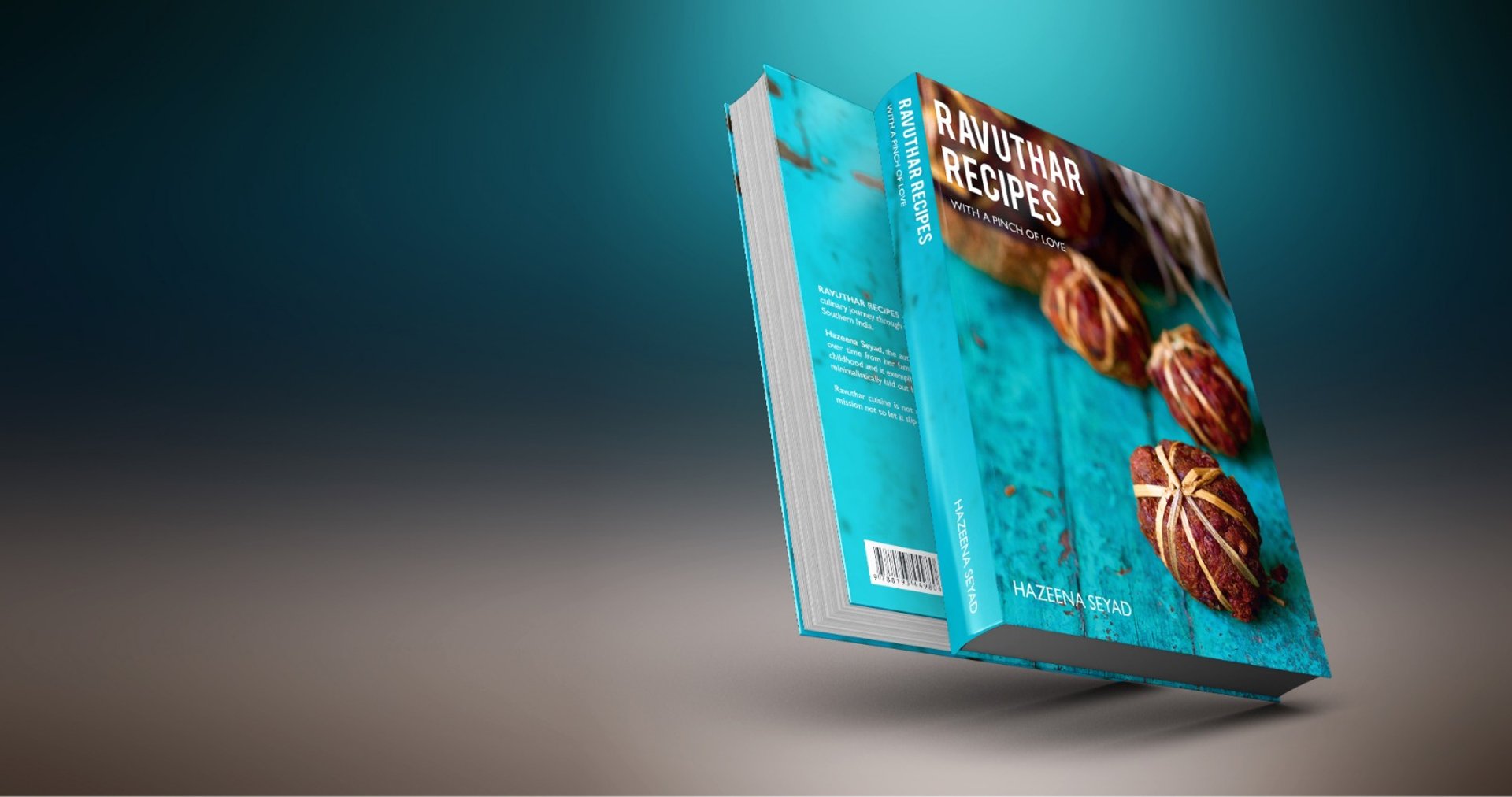
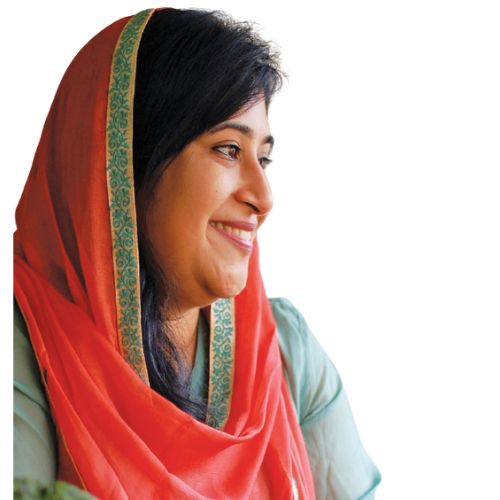


Who Are the Ravuthars?
Ravuthars are a Muslim community from the southern Indian states of Tamil Nadu and Kerala. Their history dates back to the 12th century and is linked to Muslim soldiers of mixed Arabian, Turkish, and Rajput origin who arrived in South India with the Turkish armies. Because of this ancestry, Ravuthars have historically been referred to as “Turukkars” or Turks.
The title “Ravuthar” has linguistic roots across several languages: “Rabithu” in Arabic, “Ravuth” in Telugu, “Ravuthar” in Tamil, and “Rahootha” in Sanskrit. All these terms relate to horse traders, cavalrymen, horse riders, or horse trainers. While the title originally identified those associated with horse trade and training, it gradually became associated with Tamil-speaking Muslims. During the peak of the horse trade, some Arabs and Persians served local rulers along the Coromandel coast as horse trainers and caretakers, and many formed matrimonial alliances with native women. Their descendants came to be known as Ravuthars. The name is not a caste or class, as Islam does not recognize such divisions it is purely an occupational title from the past.
Though the community is no longer involved in horse trading, the title has continued through generations. Several places in Tamil Nadu, such as Ravuthanatham (Kallidakurichi), Ravuthanpatti (Kulithalai), Ravuthan Vayal (Pudukottai), and Ravuthanpalayam (Tirunelveli), are believed to have been early Ravuthar settlements. Over time, Ravuthars have integrated socially and culturally with neighboring communities, including in my own hometown of Tirunelveli. Certain traditions still preserve their ancient heritage; for example, the groom riding a horse during wedding ceremonies, though this custom is slowly fading.
My cultural background has deeply influenced my values and personality. I was born in Palghat and raised in Coimbatore, both of which shaped my identity. The language I speak, the idioms I use, the songs I grew up with, the clothes I wear, and the food I prepare all reflect my Ravuthar upbringing. They connect me to the community I belong to and to the rich traditions I cherish.
My ancestors passed down values that have guided me throughout my life kindness, care, understanding, and the ability to see the world without judgment. These qualities, along with my love for food and culture, define who I am and the heritage I proudly represent.

Every recipe has a memory behind it — and every memory has shaped my journey. This gallery is a small window into those special moments: the kitchens where traditions were born, the hands that perfected every dish, the smiles that celebrated her creations, and the milestones I earned along the way. These aren’t just photographs. They are fragments of a lifetime, captured in frames my achievements, my passion, and the love I poured into preserving authentic Ravuthar recipes. As you browse through these moments, you’re not just seeing my journey…
You’re becoming a part of it.
Delicious Moments Captured
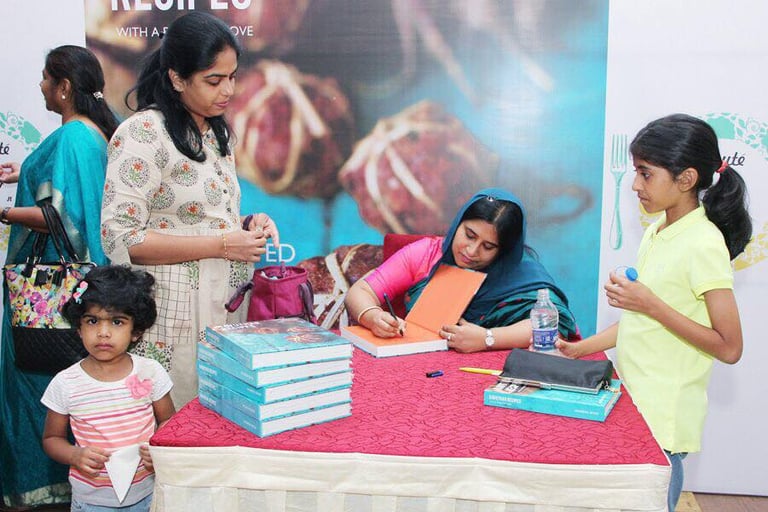

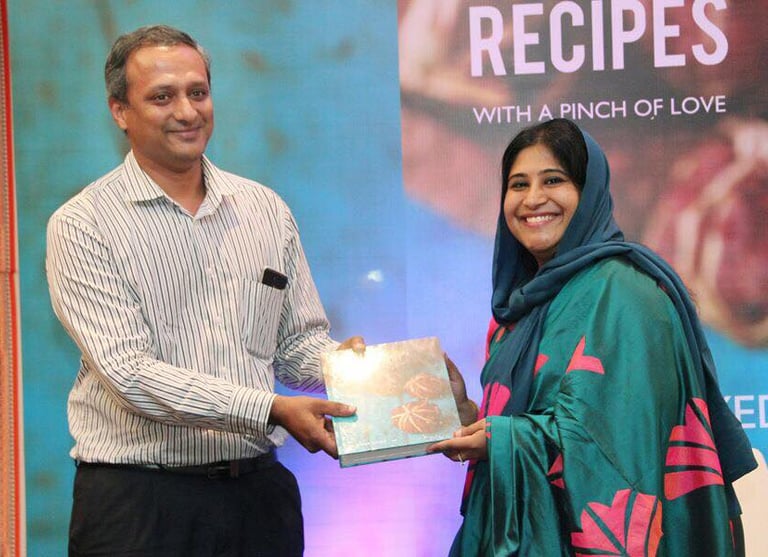

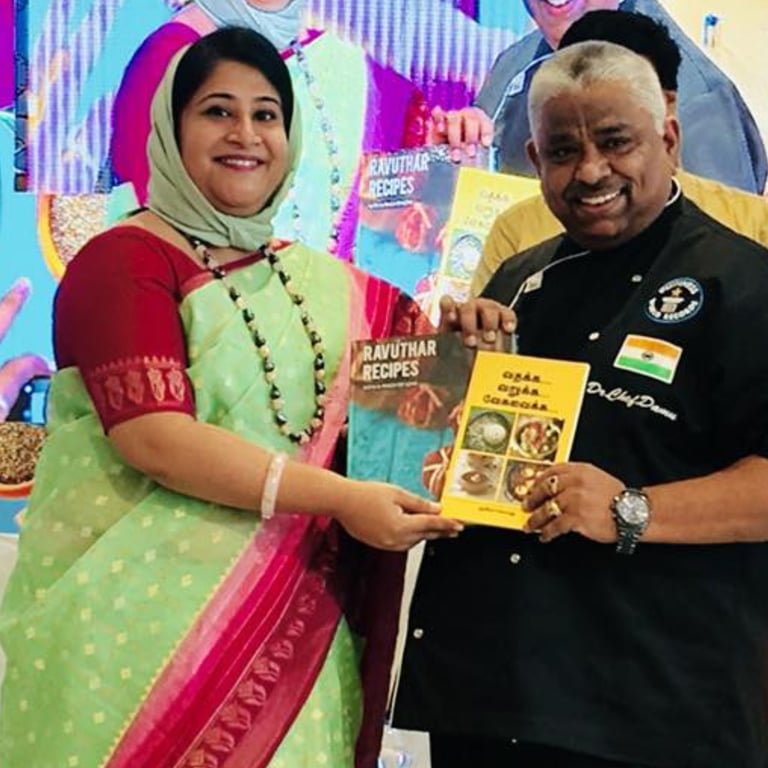

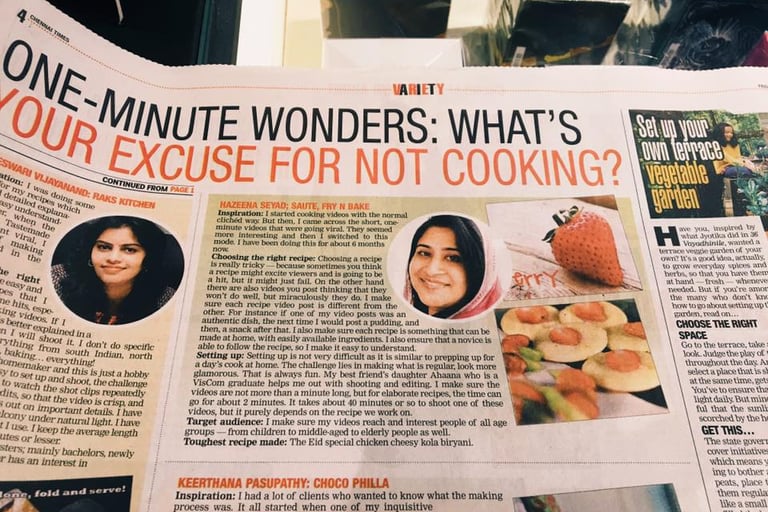

This photograph captures one of the proudest moments of her journey — the first edition of Ravuthar Recipes reaching 1,000 copies sold, followed by another 1,000 copies of Edition 2.
What started as a simple dream to preserve authentic Ravuthar home-made recipes has now become a treasured collection loved by families everywhere.
The book signing event wasn’t just a celebration of sales…
It was a celebration of heritage, hard work, and the joy of seeing centuries-old recipes reach the hands and hearts of so many. Each copy shared carries a piece of our culinary identity — pure, versatile, and untouched by commercialization.
A moment to cherish, a journey to continue, and a legacy that keeps growing with every reader.
A Special First Sale — A Moment That Means More
This photograph marks the very first sale of the Ravuthar Recipes book, made by Karthikeyan Palanisamy — a passionate cook, skilled chocolatier, and true foodie at heart. There’s something meaningful about a book rooted in authentic home cooking being first embraced by someone who genuinely appreciates the art of flavor.His support wasn’t just a purchase; it was a beautiful beginning — a sign that these traditional recipes would find their way into kitchens that value taste, craft, and heritage.
A heartfelt moment, captured forever, reminding us that every journey begins with someone who believes.
Thank you, Karthikeyan, for being the first spark in this culinary legacy.
This photograph captures a truly unforgettable highlight — the moment the Ravuthar Recipes book was shared with Chef Damu, one of India’s most celebrated culinary icons.
Standing with a legend who has dedicated his life to preserving and promoting traditional Indian cuisine made this moment even more meaningful.
For a book rooted in authentic Ravuthar home-made recipes, receiving appreciation from a master chef like him is both an honour and a validation.
It symbolizes tradition meeting expertise, heritage being recognized, and a dream finding its blessing from the best.
A frame filled with pride, gratitude, and inspiration for the journey ahead.
“Unconditional love came in big helpings of food” — with this beautiful line, The Hindu captured the true essence of Hazeena Seyad’s culinary journey. In a detailed article written by Shanthini Rajkumar and published on September 28, 2017, the book Ravuthar Recipes was celebrated as a gift to serious food lovers everywhere.
The article appreciated how Hazeena documented the authentic, home-style Ravuthar cuisine — a tradition rarely written, but deeply cherished in every Ravuthar household. Her book was described as “difficult to put down,” reflecting the depth, warmth, and heritage in every recipe.
Adding to this honor, Ananda Vikatan, Tamil Nadu’s most respected magazine, also featured her work — recognizing the cultural value, authenticity, and hard work behind preserving this unique culinary legacy.
From The Hindu to Ananda Vikatan, her recipes have travelled far — taking Ravuthar flavours from home kitchens to celebrated publication platforms.



Ravuthar Recipes
Ravuthar Recipes – With A Pinch of Love, first published in 2018 and now released in its Second Edition, celebrates the timeless culinary heritage of the Ravuthar Muslim community of Tamil Nadu. Rooted in tradition and refined through decades of home-cooking experience, the book specialises in documenting authentic regional recipes with precise measurements and easy-to-follow methods. This edition brings together carefully curated dishes—from everyday staples to festive delicacies—captured through modern formatting and clear instructions to help today’s home cooks recreate traditional flavours effortlessly. Offering more than just recipes, the book preserves cultural memory, family traditions, and the warmth of a community’s shared food stories.
Write to us
ravutharrecipesbook@gmail.com
© 2025. All rights reserved.
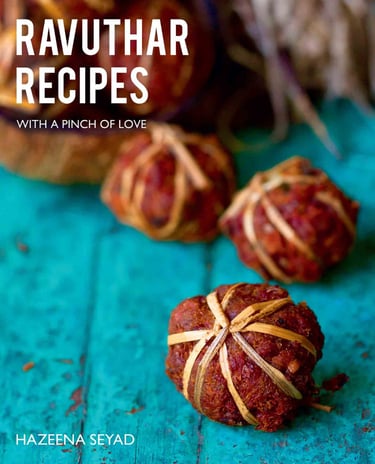

with a pinch of love
Contact Us
Ravuthar Recipes
North by-pass road,
Vannarpettai, Tirunelveli- 627003.
